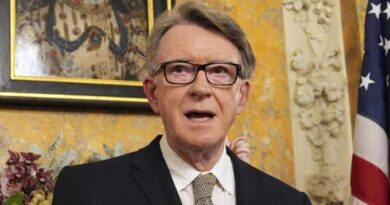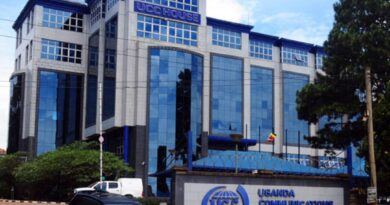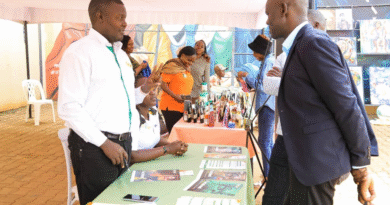Museveni, El-Sisi Commit to Strengthening Uganda–Egypt Ties, Sign Landmark Agreements
President Yoweri Museveni and Egypt’s President Abdel Fattah El-Sisi have reaffirmed their commitment to deepening the historic relationship between Uganda and Egypt a bond rooted in the River Nile and decades of Pan-African solidarity.
The pledge was made on Tuesday, August 12, 2025, during a joint press conference in Cairo, marking the second day of President Museveni’s three-day official visit at the invitation of his Egyptian counterpart.
Museveni reflected on the two nations’ shared history, noting that their geographical and political closeness dates back many decades.
“Uganda and the Great Lakes region are linked to Egypt by the Nile from ancient times. Politically, our closeness began in 1952 when President Nasser took leadership here,” he said.
“Before that, we had little contact, but Nasser, as an Africanist, worked closely with our leaders, Julius Nyerere, Kwame Nkrumah, and supported the anti-colonial movement. When we came into government, we started working with the leaders at that time.”
Turning to the future of the Nile, Museveni cautioned against narrow approaches.
“Sometimes, the problem is the approach. Instead of limiting ourselves to historical rights, we should focus on the global needs of all Nile Basin countries,” he explained. “Prosperity for all, electricity for all, irrigation for all, and clean drinking water for all. If we include these in our framework, we can then use the most scientific and fair methods to achieve them.”
The Ugandan leader dismissed the notion that his country is landlocked, citing its natural link to the Mediterranean via the Nile.
“If there were no problems in Sudan, we would not be called landlocked. We are connected to Egypt because of the Nile,” he said.
Museveni also commended Egypt for its role in supplying Uganda with vaccines for foot-and-mouth disease and for agreeing to set up a vaccine production facility in Uganda.
“I am very happy about that,” he remarked, stressing that economic cooperation is essential for Africa’s progress. “Business is about two things, producing a good or service, and someone buying it. If leaders don’t understand this, there can be no prosperity. If you buy what I produce, you are supporting me, and vice versa. That’s why I am glad His Excellency is emphasizing business. Together, we will see how to produce, trade, create jobs, and develop electricity and irrigation for our people.”
He further warned against Africa’s overreliance on Europe as a trading partner.
“Some African countries made the mistake of focusing on trading only with Europe, but that’s risky; they can block you at any time. Why can’t we trade more among ourselves?” Museveni asked.
The two presidents also discussed pressing regional challenges, including the situations in Sudan, Libya, and Palestine, with Museveni stressing the importance of dialogue and peace.
For his part, President El-Sisi underlined the Nile River’s central place in the destinies of both nations.
“The Nile binds us together. The bilateral ties between our two countries have recently witnessed growing cooperation, and I look forward to more partnerships,” he said.
He cited ongoing collaboration in agriculture, water resource management, veterinary disease control, energy, and natural resources.
The Egyptian leader reiterated his country’s dependence on the Nile and called for fair water sharing.
“Egypt has no other water source; we don’t have rainfall.
The Nile is life for us. We are not against development in any Basin country, but we call for equitable sharing of water resources. We must coexist and ensure that development does not harm the people who depend entirely on this river,” he stated.
Highlighting the river’s significance, El-Sisi said, “The Nile annually carries more than 160 billion cubic meters of water, with 85 billion cubic meters coming from the Blue Nile, much of which is used for agriculture.
This is why water is extremely critical for Egypt. Our people are deeply concerned about it, and we trust Uganda’s role in fostering agreements among Basin countries.”
He closed the joint press briefing with words of appreciation:
“I thank President Museveni and welcome him to Egypt. Our discussions have demonstrated great understanding and a shared vision for the future.”
Earlier in the day, the leaders presided over the signing of a series of Memoranda of Understanding (MOUs) spanning trade, investment, agriculture, water management, and community development.
Uganda’s Minister of Internal Affairs, Maj. Gen. (Rtd) Kahinda Otafiire, signed the first agreement with Egypt’s Minister of Foreign Affairs, Emigration, and Expatriates, H.E. Dr. Badr Abdelatty, to boost cooperation in governance, security, and diplomacy.
Other agreements included a political dialogue framework signed by Uganda’s Minister of State for Foreign Affairs, Hon. Henry Okello Oryem, and Dr. Abdelatty; an agriculture and rural development pact between Hon. Alice Kaboyo and Egypt’s Minister of Agriculture and Land Reclamation, Hon. Alaa Farouk; an economic cooperation deal signed by Uganda’s Minister of Finance, Hon. Matia Kasaija, and Egypt’s Minister of Investment and Foreign Trade, Hon. Hassan El Khatib; and a water resource management agreement between Hon. Beatrice Anywar and Egypt’s Minister of Water Resources and Irrigation, Prof. Dr. Hani Sewilam.




